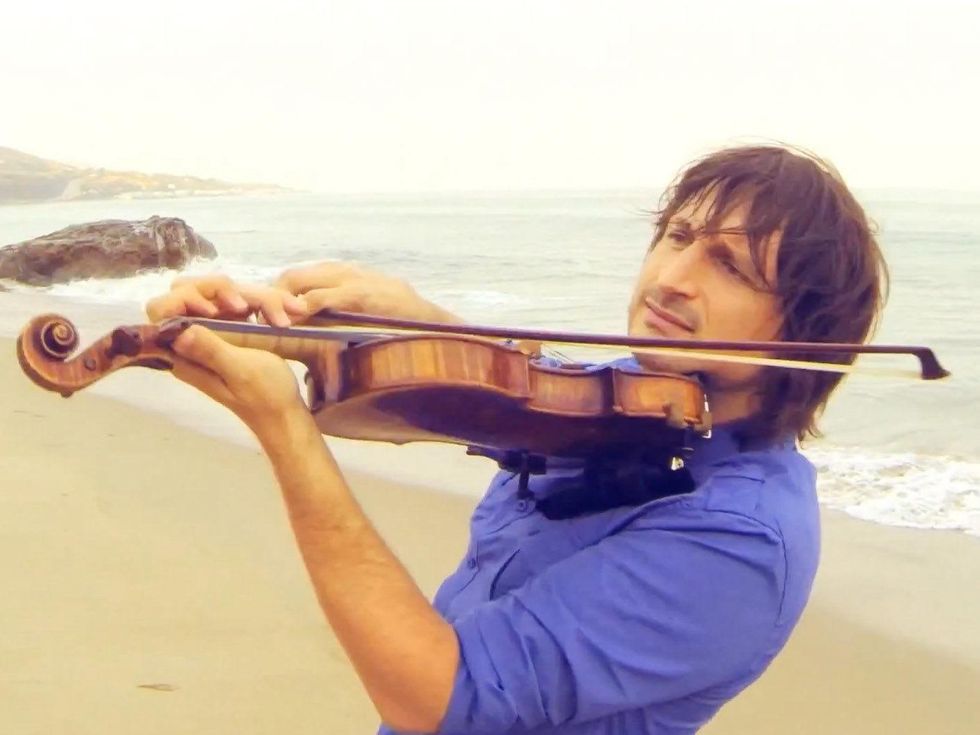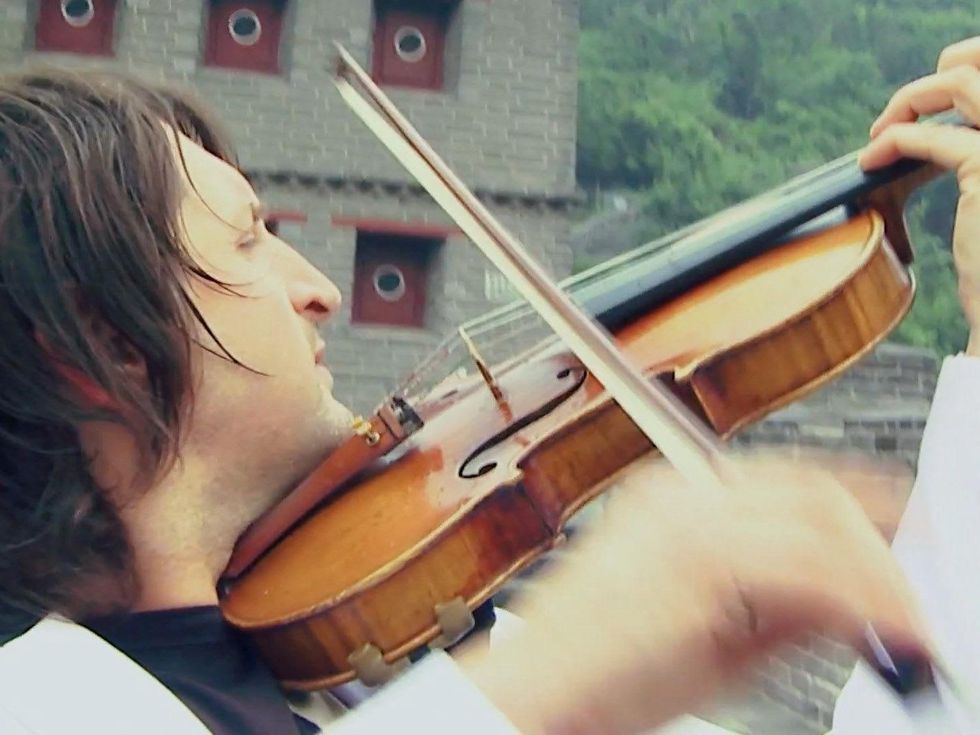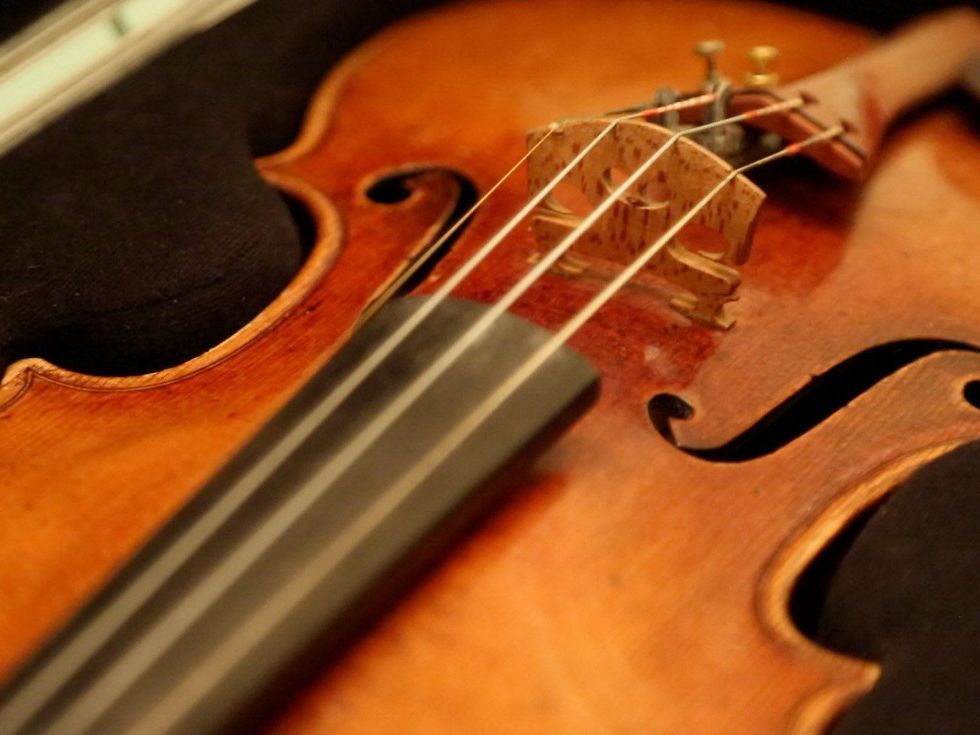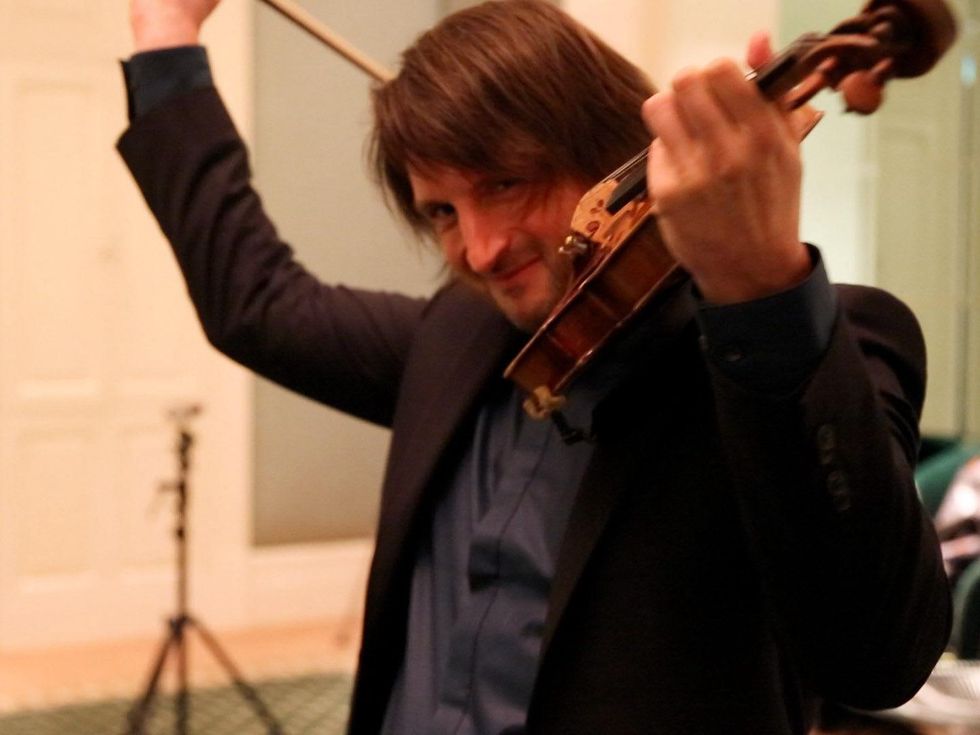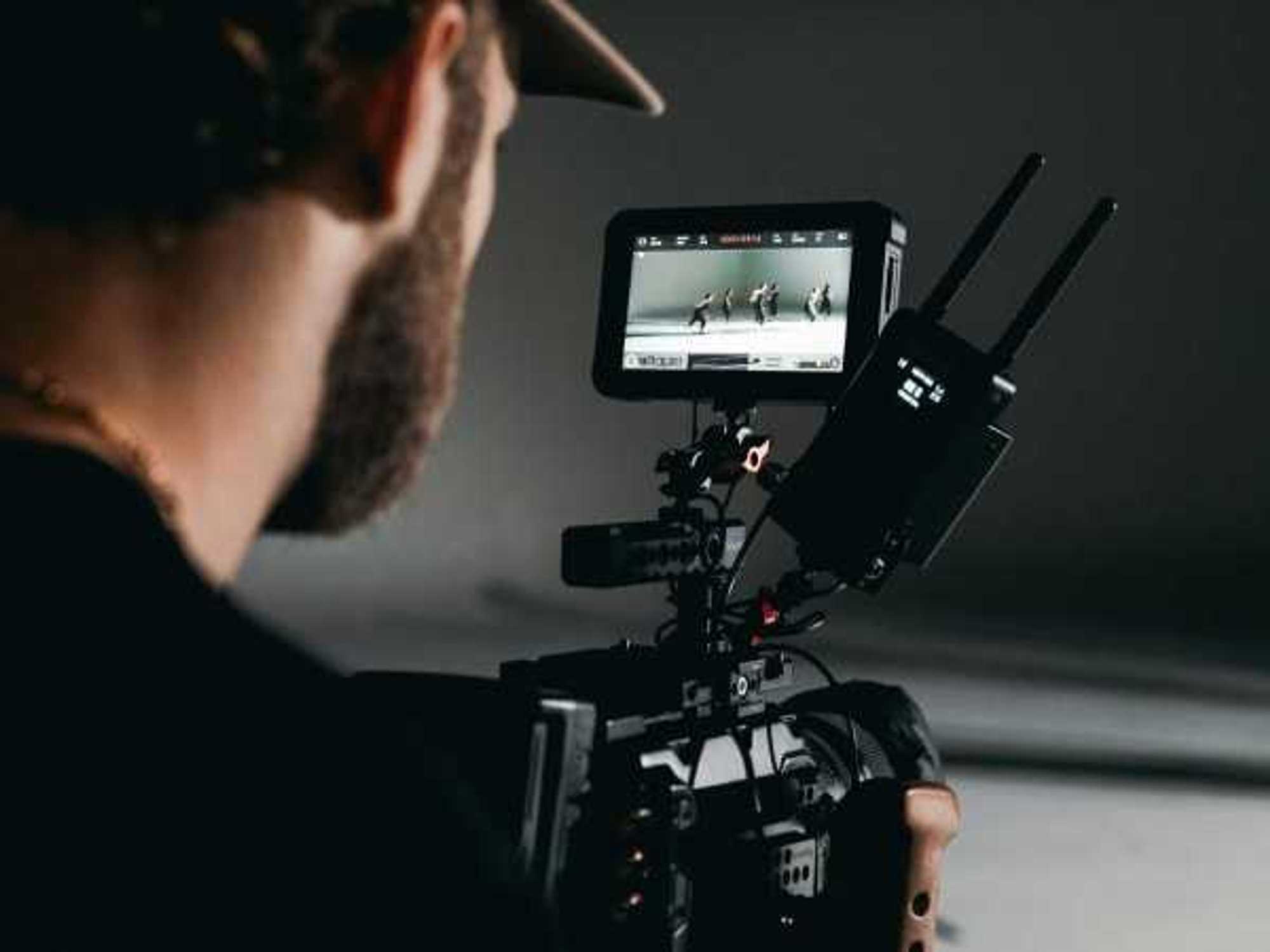CultureMap Video
Liberace of the fiddle: Rebel violinist brings his dance club music — and $3 million instrument — to Houston
It may have been an early childhood romance that first inspired Edvin Marton to pick up the violin, but his tryst with the fiddle wasn't love at first sight.
When he was 5 years old, Marton (née Lajos Csűry) had eyes for a little girl he met in kindergarten class, but as luck would have it, she wouldn't give him the time of day. He approached his mother for advice. She suggested that he learn a delightful little tune to serenade his crush on her birthday. Marton practiced and practiced in hopes of winning her heart — and he did.
After his performance, Marton received a peck on the cheek.
Marton, in Houston to perform his "Stradivarius Show" on Friday night at Wortham Theater Center as part of the Brilliant Lecture Series, comes from a family of musicians. His father is a violinist. His mother is a violinist. His grandparents, violinists. His younger sister, he says, having grown up in such an immersive environment, believed that everyone — every family — played the violin.
Marton soon discovered, however, that he disliked practicing vehemently. The prankster would trick his father into thinking he was hard at work by playing a pre-recorded tape of violin exercises. In the meantime, Marton would escape through his bedroom window to join his pals in a game of soccer. Marton even timed his absences to the minute. He would reappear just before the cassette would end — roughly 45 minutes — to turn over to the second side so he could return to the sport.
"I'd sit on the violin on purpose to break it," he says. "Because we lived in a small village, it would take a week for another violin to arrive. I was happy I didn't have to practice for a few days, but my father — oh boy — you can imagine how upset he was."
"My father wanted me to be somebody. As a kid, I didn't understand my talent. He felt my talent."
Punishments that included not being fed breakfast until after an hour of practice seemed harsh at the time. But many years later, Marton appreciates the discipline his parents instilled in him while growing up in Vinogradov, Ukraine.
"My father wanted me to be somebody," he explains. "As a kid, I didn't understand my talent. He felt my talent. And I'm thankful to him for never giving up on me."
At 8 years old, Marton was accepted to the Central Tchaikovsky Music School in Moscow. Four years later, he made his solo debut with the Moscow Symphony Orchestra. But after being accepted to Dorothy DeLay's studio at The Juilliard School in New York City, Marton's journey shifted from classical performance to rock star.
Perhaps the Liberace of the fiddle? Marton does have a penchant for dramatic costumes, feathers and special effects.
"Something was missing in my life," Marton explains. "It was after an emotional concert at the Berliner Philharmonie — I played the Brahms concerto — that I realized what it was: It wasn't my music. I needed to play my own music to express what I was feeling."
In the Big Apple, Marton mingled with DJs and frequented many underground dance clubs. He found his voice in a blend of classically themed melodies with contemporary dance grooves. But Marton's father did not agree.
"He was really mad at me," Marton says. "He wanted me to record the Tchaikovsky concerto. He wanted me to pursue traditional classical music. He didn't understand why it was important for me to do my own thing."
Would Vivaldi write for electronic instruments if he were alive today? How would Puccini feel about his tender melodies being set to thump-thumping bass lines? Would Paganini rock out to Marton's style or would he roll his eyes in contempt? And Marton ponders these questions as he writes what he hears in his head, but the uncertainty doesn't deter him from forging ahead.
Four of the five albums Marton recorded are in this fusion style. His "Tosca Fantasy" and "Romeo and Juliet" were featured in the Torino 2006 Olympic Winter Games gala spectacle that included a collaboration with figure skating gold medalists Evgeni Plushenko, Tatiana Totmianina and Maxim Marinin. In 2008, Marton won the Eurovision Song Contest with the song "Believe," co-written with Dima Bilan, a popular Russian actor and singer/songwriter.
For his Houston show, Marton will play on a $3-million, 1697 Stradivarius violin on loan from a Swiss bank. He describes the sound as rich, warm, a perfect commingling of Romanticism and virtuosity, also a combination that accurately characterizes his music. Songs including "Malibu Sunset," "Fanatico" (video recorded at the Great Wall of China) and "Grandioso" stem from his obsession with the natural world.
As for his relationship with his father, Marton says that things have come full circle.
"After one of my shows, my father said to me, 'I understand now how you feel. I know now why you wanted to compose this music,' " Marton says. "Now I can concentrate on making beautiful music — all the time."

